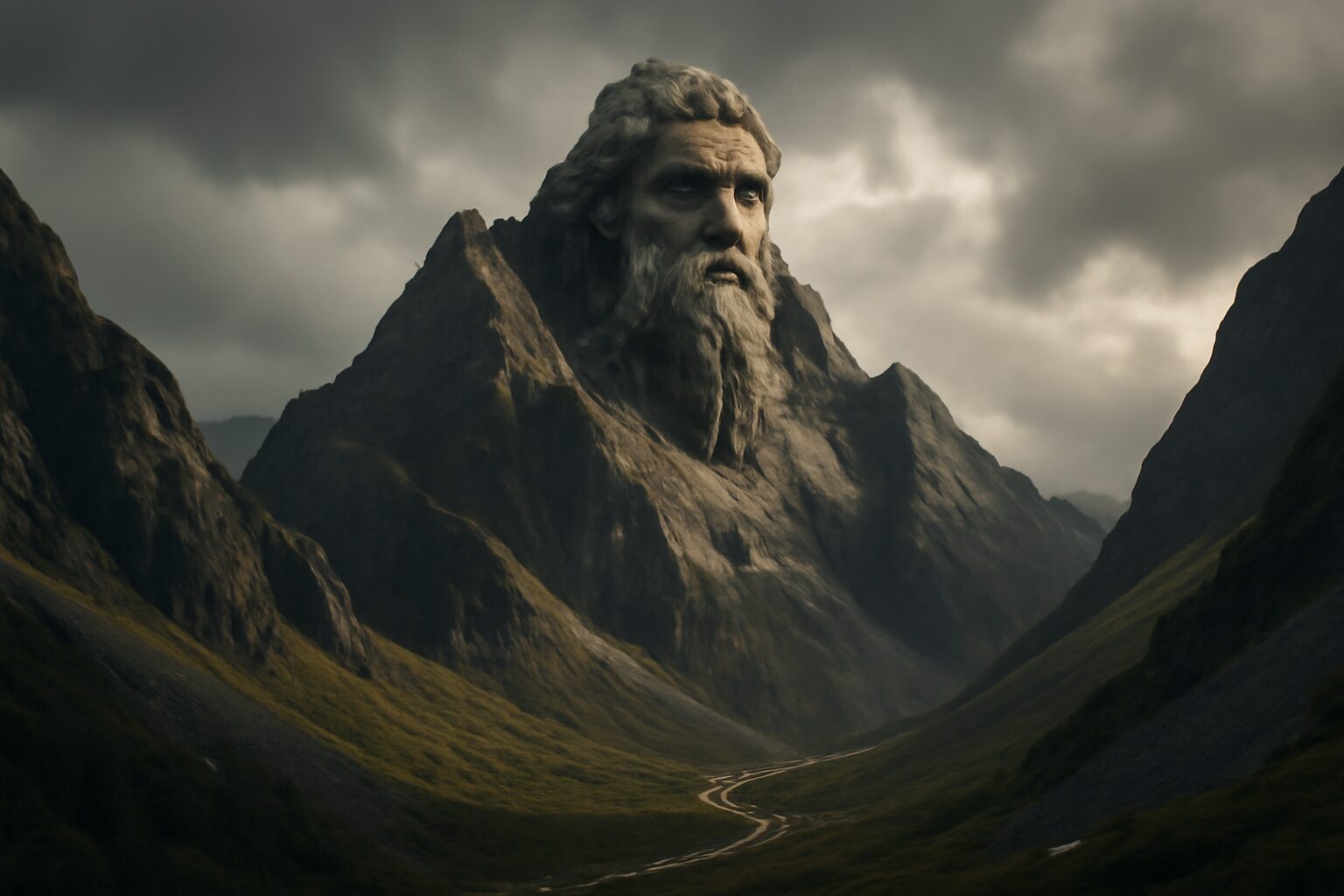The Ourea: The Primordial Gods of Mountains
In Greek mythology, the Ourea were the primordial deities who personified the mountains. Born directly from Gaia (the Earth) without a father, these ancient gods represented the towering peaks and rugged landscapes of the Greek world. Unlike the more famous Olympians, the Ourea were rarely worshiped but played a crucial role in the natural order.
Origins and Mythology
The Ourea emerged at the very beginning of creation, alongside other primordial beings like Uranus (the Sky) and Pontus (the Sea). Hesiod's Theogony lists them among Gaia's first children, emphasizing their ancient and elemental nature. Unlike later gods, they were not anthropomorphized as frequently—instead, they were the mountains themselves, silent and eternal.
Each major mountain in Greece was believed to have its own divine spirit. Some of the most notable Ourea included Mount Olympus (home of the gods), Mount Ida (sacred to Zeus and Cybele), and Mount Helicon (associated with the Muses). These peaks were often seen as sacred spaces where gods and mortals interacted.
Powers and Significance
The Ourea were not active participants in myths like Zeus or Athena but served as silent witnesses to divine and heroic events. Their presence was foundational—mountains provided shelter, marked boundaries, and were often sites of prophecy or divine revelation. For example, Delphi, home of the famous Oracle, was nestled on the slopes of Mount Parnassus, another sacred peak.
Though they lacked elaborate cults, the Ourea were respected as embodiments of nature's permanence. They symbolized stability in a world of chaos, standing firm while gods and mortals played out their dramas below.
Relationships with Other Deities
As children of Gaia, the Ourea were closely tied to the earth and its forces. They occasionally interacted with nymphs, such as the Oreads (mountain nymphs), who were their frequent companions. Some myths suggest that the Ourea were allies of Zeus during the Titanomachy, providing him refuge when he waged war against the Titans.
Unlike the turbulent sea or the ever-changing sky, the Ourea represented endurance—a reminder that some forces in the cosmos remain unchanging. Their legacy endures in the way ancient Greeks (and modern admirers of mythology) view mountains: not just as geological features, but as living, sacred entities.
Alternative Names for Ourea (Mountains)
God Name: Ourea (Greek)
The primary name in Greek mythology, referring to the primordial gods of the mountains.
God Name: Montes (Roman)
The Roman equivalent of the Ourea, representing the divine personifications of mountains.
God Name: Ouranides (Greek)
An alternative name sometimes used to refer to the Ourea, linking them to their parentage (children of Ouranos, the sky).
Tales about Ourea (Mountains)
The Mountain's Healing Embrace
When the great plague swept across the mortal realm, even the mighty Ourea felt its touch. The mountains groaned as sickness seeped into their soil, weakening the very roots that held them firm. Desperate, they called upon Aceso, goddess of the healing process. She descended from Olympus, her presence like a gentle dawn breaking over the peaks.
Aceso's Restoration
Aceso moved through the valleys, her hands glowing with restorative light. She touched the withered pines, and they sprang back to life, their needles shimmering with dew. She whispered to the mountain streams, and their waters ran clear and pure once more. The Ourea felt her power coursing through their stone veins, mending the fractures and cleansing the corruption. In gratitude, the mountains offered her a permanent sanctuary—a hidden grove where healing herbs grew in abundance, and the air itself held curative properties.
The Mountain's Echoing Lament
High in the craggy peaks, the Ourea once harbored a lonely nymph named Echo. She was the voice of the mountains, her laughter ringing through the canyons and her songs carrying on the wind. But when Zeus's wife, Hera, discovered that Echo had been distracting her with chatter to hide Zeus's affairs, she cursed the nymph. Echo could no longer speak her own words; she could only repeat the last words spoken by others.
Echo's Eternal Bond
Heartbroken, Echo fled deep into the mountains, her once-melodious voice now a hollow mimicry. The Ourea, moved by her plight, embraced her as one of their own. They amplified her fragmented voice, ensuring that every traveler who called out would hear her reply. To this day, Echo resides within the mountains, her voice a timeless reminder of loss and the enduring solidarity of the Ourea.
Frequently Asked Questions
Who are the Ourea in Greek mythology?
The Ourea are primordial deities representing the mountains in Greek mythology. They were born from Gaia (Earth) without a father and are considered some of the earliest divine beings in the Greek cosmos.
Why are the Ourea important in Greek mythology?
The Ourea are important because they represent the sacredness of mountains in ancient Greek religion. As primordial deities, they show how early Greeks personified and worshiped natural features, seeing them as divine entities rather than just landscapes.
How many Ourea are there in Greek mythology?
There are typically considered to be ten Ourea, each representing a specific mountain in Greece. Some of the most notable include Mount Olympus (home of the gods), Mount Athos, and Mount Nysa.
What can we learn from the Ourea in Greek mythology?
The Ourea teach us how ancient Greeks viewed their natural environment with reverence. They show how early civilizations often deified geographical features, seeing them as living entities with divine power rather than just inanimate objects.
Are the Ourea still relevant today?
While not worshiped today, the Ourea remain relevant as examples of how ancient cultures understood their world. They inspire modern environmental spirituality and remind us of humanity's historical connection to nature through mythology.













